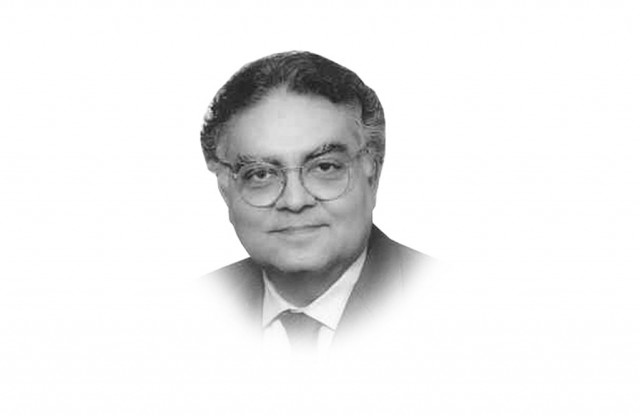A civilisation silenced
Addressing the crisis involves uniting state organisations to provide justice to those who massacre innocents.

The writer is Distinguished Professor of Economics at Forman Christian College University and Beaconhouse National University
British historian Arnold Toynbee, in his monumental work on world history, has argued that the rise and fall of civilisations hinges on the way they deal with existential challenges. If a nation or civilisation can articulate the challenge it confronts and is able to bring out its best in overcoming it, then such a civilisation flowers and prospers. If it fails to do so, the civilisation perishes. Pakistan stands at such a critical juncture today. It is a crisis of state power in that the state has so far not been able to establish order, subdue armed groups that seek to overthrow its constitutional authority and control widespread violence. The crisis of the state, however, is inextricably linked with the economy which, as it is presently structured, is incapable of providing the minimum conditions of dignified life to the majority of the people; it is also linked to society which has become increasingly polarised, subject to false ideological constructs and alienated from the core human values which gave it cohesion and resilience. So, given the depth and multifaceted nature of Pakistan’s crisis, the process of overcoming it will involve drawing upon the wisdom, values and strength of its civilisation.
Bulleh Shah, the great Punjabi Sufi poet (late 17th to mid-18th century), spoke of a turning point in his time: “It was when the epoch turned that I discovered the secrets of the beloved” (translated). The beloved here is the deepest part of the self where the self and the other are part of the same unity. The Punjabi Sufi poets, as indeed the Sufis of Balochistan, Khyber-Pakhtunkhwa and Sindh, articulate that unity underlying the diversity of cultures in this region and the cohering sensibility of a pluralistic society. The wisdom that resonates in the surging waters of the Indus and echoes in the mountains of Khyber-Pakhtunkhwa as much as in the deserts of Sindh and Balochistan, is that the ligament that connects humans with the transcendent is love. It is woven into the fabric of individual being. Love is manifested in social existence in the form of justice, equity and the pursuit of truth and beauty.
Addressing the current crisis involves uniting state organisations and bringing to bear state power to provide justice to those who massacre innocents. It means building an economy that draws its dynamism from equity and the talents of all citizens rather than a few. It will also require rediscovering the wisdom and the values emanating from the shared civilisational wellsprings of a diverse society.
Published in The Express Tribune, March 11th, 2013.
















COMMENTS
Comments are moderated and generally will be posted if they are on-topic and not abusive.
For more information, please see our Comments FAQ